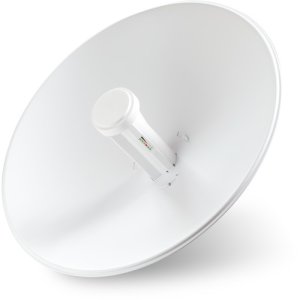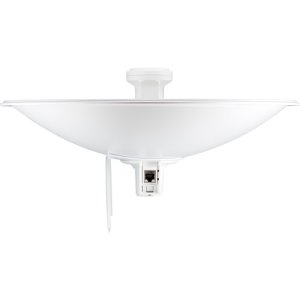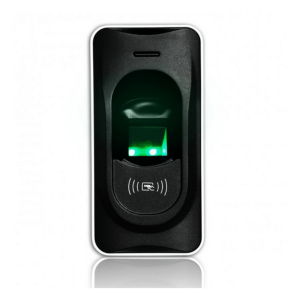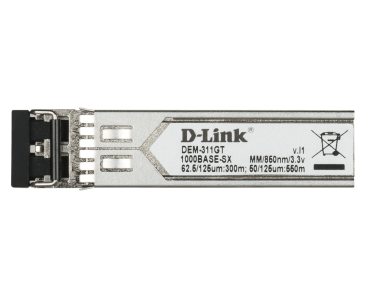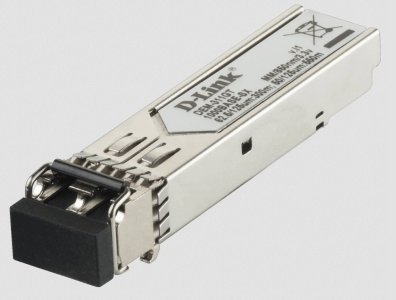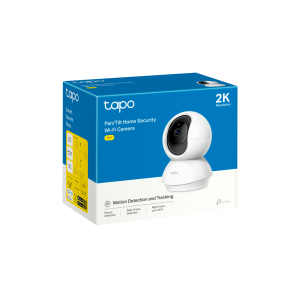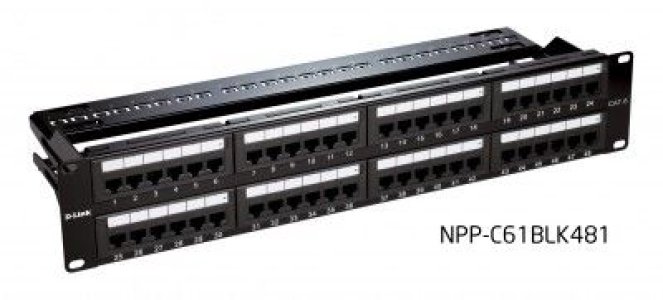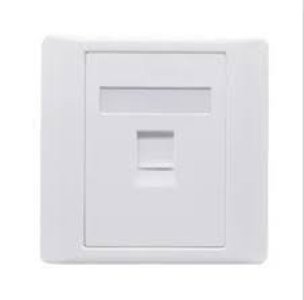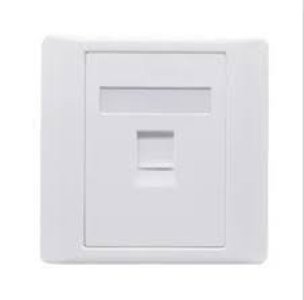Key features for Ubiquiti PowerBeam M5 400 (PBE-M5-400) - PBE-M5-400
- Atheros MIPS 74Kc, 560 MHz Processor
- 64MB DDR2, 8MB Flash Memory
- 5725 to 5850 MHz Operating Frequency
- 15.7" Dish Reflector
- airMAX Technology
- Integrated InnerFeed Technology
- airOS Firmware Technology
- airView for Advanced Spectrum Analyzer
- Innovative Mechanical Design
Description for Ubiquiti PowerBeam M5 400
With an all-in-one design, the PBE-M5-400 PowerBeam airMAX Bridge from Ubiquiti Networks is an airMAX product meant to function as customer premises equipment (CPE). With a more concentrated, direct signal clients benefit from improved noise immunity to as this bridge is capable of filtering out much of the noise that can degrade the signal. With Ubiquiti's own inner feed design installation of the PowerBeam airMAX Bridge has been greatly simplified as there is no longer a need for any cabling. Once installed the included airMAX technology helps network administrators to manage and monitor the network. From intelligent QoS to scalability Ubiquiti has provided the tools necessary to create long range networks offering reliable wireless network access to a large number of clients.
The PowerBeam directs RF energy in a tight beamwidth. With the focus in one direction, the PowerBeam blocks or spatially filters out noise, to improve noise immunity. This feature works in areas crowded with other RF signals of the same or similar frequency.
Ubiquiti's InnerFeed technology integrates the radio into the feedhorn of an antenna, so there is no need for a cable. This improves performance because it eliminates cable losses. Providing high performance and innovative mechanical design at a low cost, the PowerBeam is versatile and cost-effective to deploy. The antenna feed has a thin gray ring around the center of the cap.
Ubiquiti's Time Division Multiple Access (TDMA) airMAX protocol allows each client to send and receive data using pre-designated time slots scheduled by an intelligent AP controller. This time slot method eliminates hidden node collisions and maximizes airtime efficiency. It provides significant performance improvements in latency, throughput, and scalability compared to all other outdoor systems in its class. With intelligent QoS, priority is given to voice/video for seamless streaming and is capable of high-speed, carrier-class links.
airOS is a highly developed, user-friendly Ubiquiti firmware technology. The firmware architecture enables high-performance and outdoor multi-point networking. It features protocol support, Ubiquiti channelization, spectral width adjustment, ACK auto-timing, AAP technology, and multi-language support.
Integrated on all Ubiquiti M products, airView provides advanced spectrum analyzer functionality. Waterfall, waveform, and real-time spectral views allow operators to identify noise signatures and plan their networks to minimize noise interference. With Waterfall you can aggregate energy over time for each frequency, Waveform aggregate energy collected, with real-time energy shown as a function of frequency, and you can also automate airView to record and report results with recording.
airControl is a powerful and intuitive, Web-based server network management application, which allows operators to centrally manage entire networks of Ubiquiti devices. It features network map, monitor device status, mass firmware upgrade, Web UI access, manage groups of devices, and task scheduling.
With built-in mechanical tilt, the mounting bracket conveniently offers 20° of uptilt and up to 20° of downtilt. The number of fasteners is reduced to simplify assembly. Tools are required only when the technician mounts the PowerBeam on the pole. The antenna feed can be detached with the push of a button.
Fasteners are GEOMET-coated for improved corrosion resistance when compared with zinc-plated fasteners. Dish and brackets made of galvanized steel that is powder-coated for corrosion resistance. The redesigned pole bracket resists paint loss for improved corrosion resistance.


